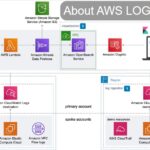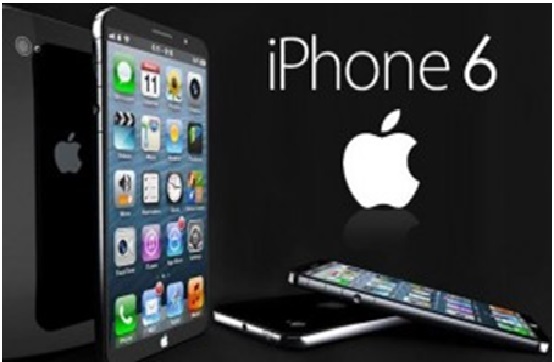Get to Know About Lead Generation For Boosting Business Profits.
Every single businessperson in this world wakes up with the desire to witness a major expansion in his/her business each day.
As entrepreneurs, we all want to earn huge sums of money and reap good profits.
I’m sure you want that too.
But what is the most crucial aspect of earning profits through your business? The answer is simple – Lead Generation.
Today’s article is written by me keeping in mind the extraordinary significant role of a lead in the process of business expansion. It deals with the dilemma surrounding the question that how can you generate a considerable number of leads in a short span of time.
If that’s something you are looking forward to learning, trust me you’ve reached the right place.
Allow me to start the article firstly by defining “what is a lead?” for a deeper and clearer understanding of the topic.
Let’s waste no more time and dive right in.
What Is A Lead?
A lead can be defined as an individual who depicts any sort of interest in a given company’s goods, products and services.
They are a broader life aspect of a visitor who then converts into a customer.

Website Visitor< Lead < Customer
Leads are usually tapped onto by an organization or a company simply by submitting their personal information regarding a free trial, subscription or an offer given by the company.
Depending on the stage and nature of a lead, we can classify them into 4 types :
- Marketing Qualified Lead (MQL) are those contacts who are a product of an engagement between your marketing team and them but who are not yet ready to divulge into business by receiving a sales call.
- Sales Qualified Lead (SQL) are those leads who are quite interested in your company and can be easily converted into regular paying customers.
- Product Qualified Lead (PQL) are those people who have already used your products in the past and are willing to become regular paying customers.
- Service Qualified Lead are those contacts who have shown their interest in your brand via your service team.

After our enriching discussion about a lead, we must now move forward to learn in depth about lead generation and the various practices involved in it.
Let’s get started.
What Is Lead Generation?
The process of attracting as well as converting website visitors into potential customers is referred to as a lead generation.
Lead generation can be quite a complex process in itself but with the help of top schemes and techniques, you can easily generate numerous leads for your company within a short span of time.
Here’s a list of a few prominent lead generation techniques:
- Search Engine Optimization (SEO)
- AdWords
- Blog Posts
- Online Content
- Social Media Marketing (SMM)
- Live Events
- Surveys
- LinkedIn Ads
- B2B & B2C Portals
- SMS Marketing
- E-mail Marketing
Let’s read about them in detail for clearer understanding.
Lead Generation With SEO

Generating leads through SEO strategies is a long-term fruitful venture.
Being absolutely organic and cost-less in outlook, SEO proves to be the best technique for lead generation.
All you have to do is to simply improve the quality of your online content and optimise your website and you’ll be able to attract numerous leads towards your brand.
Here are a few tips to make it happen :
- Make a note of relevant keywords.
- Google about the trending searches often.
- Organize the search results alongside the sales funnel of your website.
- Optimize the existing content.
- Don’t leave any gaps on your page. Make it consistent with content.
It’s that simple.
Lead Generation With AdWords

One of the easiest ways to generate leads online is by using Google AdWords as a primary lead generation tool in your marketing campaign.
It is not only a highly effective but also a cost-efficient technique to attract considerable traffic on your website thereby increasing the rate of lead generation manifold.
Google AdWords is a platform which aims to promote paid advertisement of businesses online. It hinges upon the use of display and search ads in order to target the right audience for your business.
PPC (Pay-Per-Click) services form the basic essence of AdWords using which it helps in lead generation activities across YouTube and other Google search and display networks.
Well, who wouldn’t want that?
Lead Generation Through Social Media Marketing

Social Media is one of the strongest platforms to indulge in the activity of lead generation.
With a magnificent spread of social media sites and it’s users all across the globe, it plays an immensely significant role in generating leads.
All you have to do is to choose the right social media platform for promoting your brand. And the rest will be assured by itself.
According to me, the top social media platforms for lead generation are:
- Messenger
- Tumblr
Select the best site for your brand yourself.
Lead Generation Through LinkedIn Ads

LinkedIn Ads are also a potent way to generate leads for your brand.
LinkedIn enables you to collect all the relevant information from your leads through their pre-filled profile data enabled by a CTA (Call-to-action) button on the app.
Once this information is attained by you, lead generation would hardly be a difficult task.
Lead Generation With B2B & B2C Portals

Leads can also be generated with the help of B2B (business-to-business) and B2C (business-to-consumer) portals.
Here are a few strategies for it :
- Content Marketing.
- Social Media Marketing.
- PPC ( Pay-Per-Click).
- Increase your social network shares.
- Use FOMO (Fear Of Missing Out) to increase your conversion rate.
It’s that simple.
Lead Generation With SMS Marketing

SMS broadcasts are one of the most followed methods for generating leads as it has a high percentage of conversion rates.
With the help of a simple SMS you can promote your brand and harp on new customers at the same time.
Isn’t that great?
Lead Generation With Email Marketing

E-mail marketing is another such prominent strategy to generate leads in large numbers.
Promoting your brand products with the help of an email is a fast, flexible as well as a cost-effective way to reach out to new audiences as well as retaining the existing ones.
It also offers you an opportunity to create personalized targeted messages for your leads in order to attract them towards your brand.








